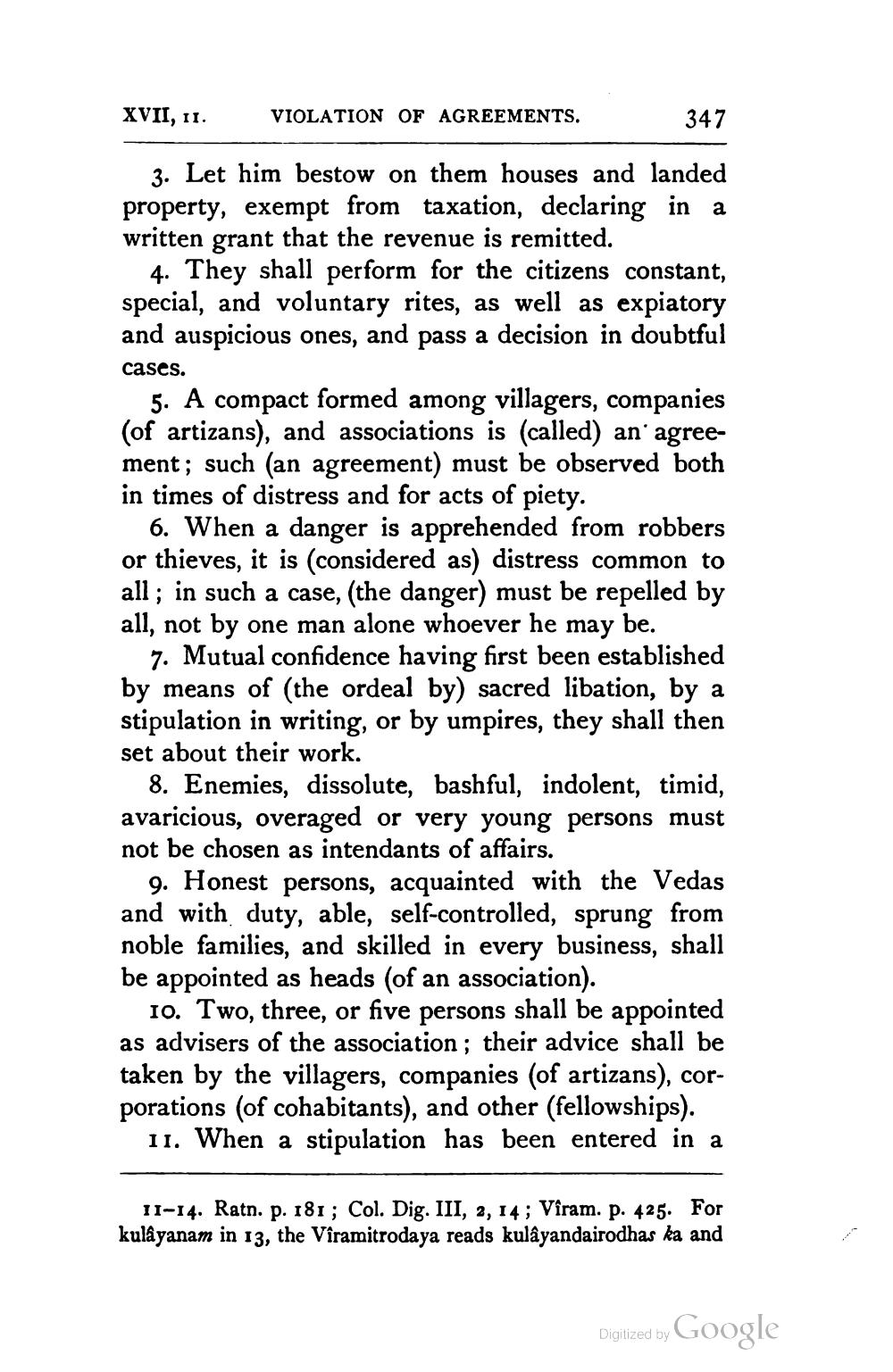________________
XVII, 11.
VIOLATION OF AGREEMENTS.
347
3. Let him bestow on them houses and landed property, exempt from taxation, declaring in a written grant that the revenue is remitted.
4. They shall perform for the citizens constant, special, and voluntary rites, as well as expiatory and auspicious ones, and pass a decision in doubtful cases.
5. A compact formed among villagers, companies (of artizans), and associations is (called) an agreement; such (an agreement) must be observed both in times of distress and for acts of piety.
6. When a danger is apprehended from robbers or thieves, it is (considered as) distress common to all; in such a case, (the danger) must be repelled by all, not by one man alone whoever he may be.
7. Mutual confidence having first been established by means of (the ordeal by) sacred libation, by a stipulation in writing, or by umpires, they shall then set about their work.
8. Enemies, dissolute, bashful, indolent, timid, avaricious, overaged or very young persons must not be chosen as intendants of affairs.
9. Honest persons, acquainted with the Vedas and with duty, able, self-controlled, sprung from noble families, and skilled in every business, shall be appointed as heads (of an association).
10. Two, three, or five persons shall be appointed as advisers of the association; their advice shall be taken by the villagers, companies (of artizans), corporations (of cohabitants), and other (fellowships).
11. When a stipulation has been entered in a
11-14. Ratn. p. 181; Col. Dig. III, 2, 14 ; Vîram. p. 425. For kula yanam in 13, the Vîramitrodaya reads kulâyandairodhas ka and
Digitized by Google




